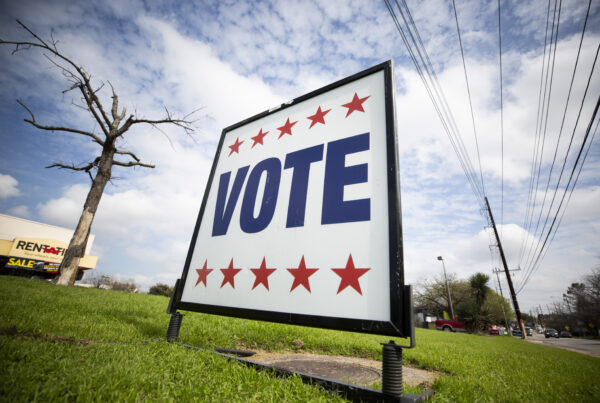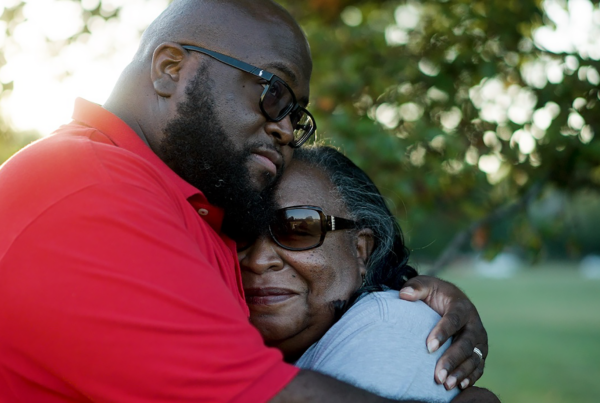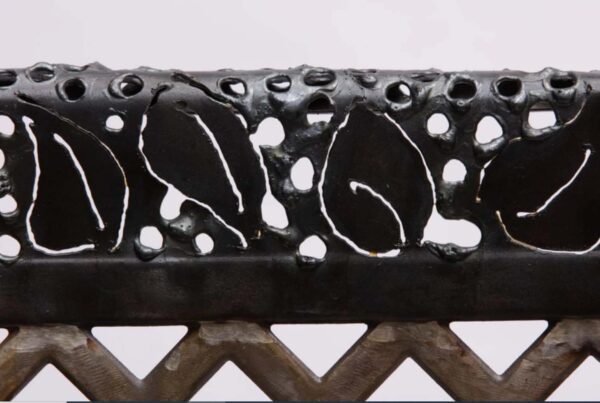From Texas Public Radio:
On an overcast Friday evening in February, residents of Colonia Mi Sueño gathered in a backyard to celebrate their newly paved street. Just two years ago, it was rough and undrivable after heavy rainfall.
Hidalgo County Precinct Three commissioner Everardo Villareal made the project possible and now spoke to the community.
“I remember the name, Mi Sueño, and I saw the necessity and I saw how it was when I had to come when it was flooded and there was so much water in the streets,” Villareal told the crowd.
Colonias started decades ago as unregulated, unincorporated subdivisions along the Texas-Mexico border, housing mostly migrant workers. The subdivisions were illegally divided, so many homes didn’t have their own addresses, a problem that persists to this day.
They also lacked basic infrastructure, such as proper drainage or potable water, and were often sold to homebuyers under the guise that these services were coming. But many of these communities are still waiting. About half a million people now live in more than 2,000 colonias in Texas.
Over the past decades, state lawmakers allocated funds and created programs to bring infrastructure to these communities and improve residents’ quality of life.
But this is a record-breaking year for colonia-related legislation.
For the first time in over three decades — or since Texas began creating laws to govern colonias — crucial programs were excluded from this session’s proposals, despite advocates expressing the need for more oversight to improve colonias and outreach to residents and a reevaluation of what characterizes a colonia.
Legislators did propose increases in funding and regulations to aid water-related improvements in economically distressed areas, a designation which includes many colonias. But the bills have a slim chance of passing.
This year, legislators focused on water
“One of the things that we know is key to getting water and wastewater infrastructure to colonias – or basically, rural low-income communities – is Economically Distressed Areas Programs,” State Rep. Mary González from El Paso said.
Since 1989, the Economically Distressed Areas Program (EDAP), which is run by the state, has been instrumental in acquiring and improving these services in low-income areas. According to a 2022 Annual Report, more than $830 million has gone to EDAP projects statewide.
Despite the massive sum, Rep. González said the need for water assistance persists, which is why she filed a bill during the current legislative session to make EDAP funding more accessible. Representatives Morgan LaMantia and Janie Lopez, of Cameron and Willacy counties, also filed bills to fortify these funds.
Sen. Cesar Blanco filed a bill requiring drainage in these border county subdivisions. He also filed a bill requiring colonia residents to have their own addresses.
“Every dwelling needs to have a unique verified address to receive basic infrastructure,” Blanco said. “But because these plats are illegally subdivided, many residents are without proper necessary utilities, leading residents to redirect water flow to neighboring homes or lots.”
The bills face an uphill battle in the legislature. And even if they pass, the money they free up wouldn’t pave the roads in places like Colonia Mi Sueño or provide other much-needed assistance to these communities.
The need for more oversight and awareness
Villareal used Community Development Block Grant, or CDBG funds, to pave the road in Colonia Mi Sueño. The money comes from the federal government but is funneled through various programs and state agencies.
“Obviously, we need to submit all our colonias to make sure that they qualify. And, well, that’s where we get our money to be able to pave our streets every year,” Villareal said.
According to Suzanne Barnard, state director of the CDBG program, the federal government requires that 10% of these funds go only to colonias.
This year, that’s about $7 million.
To get this money, recipients must show the federal government that past funding was used effectively. But it has been almost a decade since colonias have been evaluated.
Now, that money, which should go toward things like paving roads, is being used to fund a study to evaluate colonias.
“This is an unusual effort to do this major investment,” Barnard said.
Previously the Secretary of State’s Colonias Initiative regularly surveyed colonias, which helped fulfill the federal requirement. But Gov. Greg Abbott struck the program in 2017.
“This colonia planning is about really documenting what colonia communities exist in the state of Texas, on how many of them there are, and what the needs are currently in those communities,” Barnard said.
The defunct state program also designated ombudsmen to identify a colonia’s needs and potential government support.
In 2022, Congresswoman Veronica Escobar of El Paso urged the U.S. Department of Housing and Urban Development to establish a Colonia Ombudsman Office. But nothing was proposed at a state level.
Barnard said such a program would be helpful in aiding these communities.
“The information gap is significant,” she said.
Another problem colonias face is simple vocabulary. Agencies vary on how they define colonias. Yet, many projects require the assistance of multiple agencies.
For example, Villareal is helping some homes in his district get water service for the first time.
While the state can help extend water system lines to homes, it can’t help homes install connections, or things like bathtubs and faucets.
“It is unbelievable for me to know that in this day, we have residents that do not have water in their properties,” Villareal said.
For now, he said his residents will have to pay for their own water meters.
Some of the CDBG funds can go toward such projects, but only if the colonia meets the federal criteria. That means it had to have existed before 1990.
Rep. González spoke out against the cancellation of the state Colonias Initiative in 2017 and still believes it should be reinstated.
“I’m devastated. We still don’t have that program and I think [they definitely made] a mistake,” she said.














